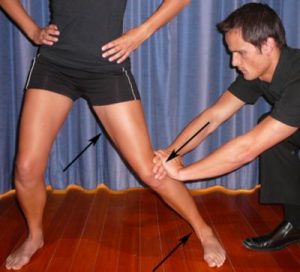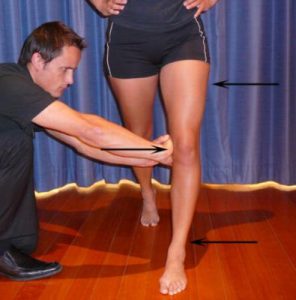Other important ligaments in your knees are your Medical Collateral Ligament and the Lateral Collateral Ligament. These, along with the rest of the ligaments, work together to provide stability in the knee joint. The MCL, originates from the inside part of your femur (thigh) and attaches to the inside part of your tibia (leg). The LCL, on the other hand, originates from the outside part of your femur and attaches to the outside part of your tibia.

The MCL is important in providing stability in your knee, so that it does not bend inwards. Injuries to this ligament could be due to a prolonged stress on the MCL, such as during skiing. It can also be injured due to a traumatic incident, whereby you are tackled from the outside.
The LCL, meanwhile, is important in providing stability in your knee, so that it does not bend outwards. Injuries to this ligament are usually due to a traumatic incident, whereby you are tackled from the inside.
There are 3 grades of ligament tears:

- Grade 1=a small tear resulting in some pain but still allowing almost full function
- Grade 2=a moderate-significant amount of tear, causing significant pain and reduction in function
- Grade 3=a complete tear of the ligament, resulting in pain, instability as well as minimal function. A grade 3 tear may also involve damages on other structures as well.
It is important that after a knee injury and if you suspect an MCL or LCL tear, that you seek physiotherapy help as soon as you can. Our physios at Capital Physiotherapy are well trained to diagnose as well as clear other structures in the knee of any involvement in the injury. Your appointment is spent 1-on-1 for the duration of the session to ensure you get the most out of your physio. A treatment plan will be provided to you so that you have a clear understanding of what needs to be done to get you back doing what you do best!
Don’t hesitate to contact us at Capital Physiotherapy!

